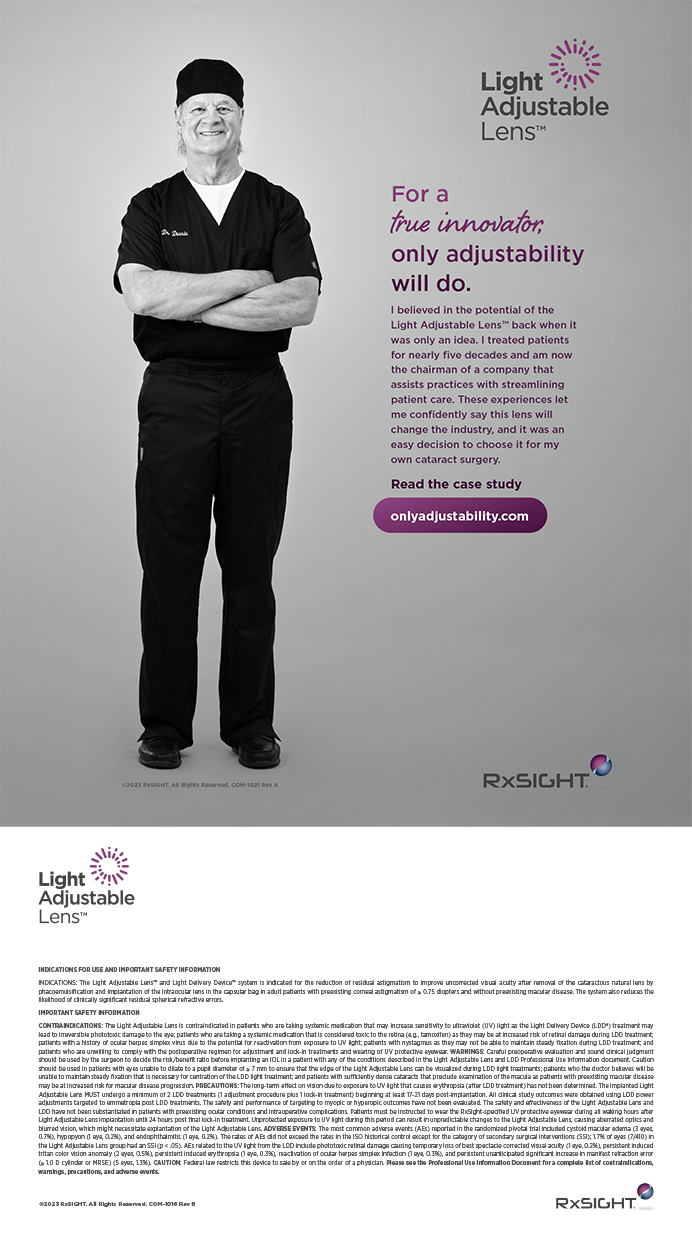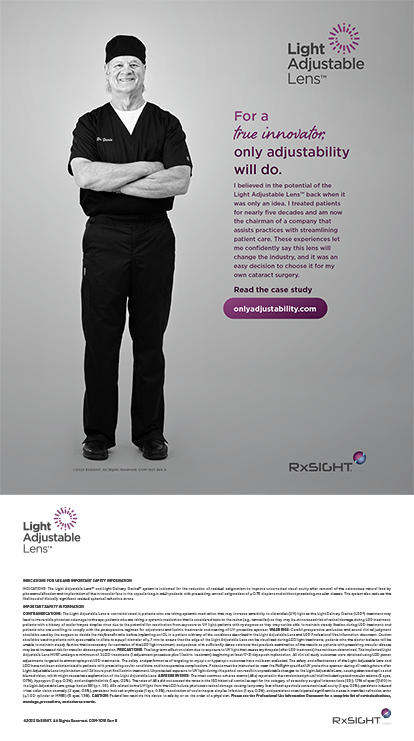Learning to skillfully manage premium refractive IOL candidates is a process. I recommend three strategies to minimize chair time with these patients.
NO. 1. HAVE A FAMILY MEMBER IN THE ROOM
When patients have been diagnosed with a cataract, I have found that allowing them to bring a trusted family member or friend into the room for their surgical consultation helps patients to understand their optical issues and available lens options. These supporters also make the conversation easier for the surgeon. First, the family member helps to explain the information that the surgeon provides. Second, this person often reassures the patient that it is OK for him to consider a premium IOL, especially when he is reluctant to spend money on himself. A trusted supporter can often make a patient feel better about considering additional costs.
NO. 2. PROVIDE PATIENTS WITH INFORMATION IN ADVANCE
Patients who are scheduled in a "cataract slot" in my practice receive informational packets in the mail that typically include an explanation of a cataract and the necessary surgery as well as a description of various lens choices (I prefer to give my own information rather than use the manufacturers'). Having this information before their consultation gives patients time to absorb the knowledge, prepare questions for their visit, and consider their options for lens implants. The packet also includes a modified version of the Dell questionnaire to help patients determine which lenses most interest them. The more knowledge they have prior to their office visit, the better prepared they are to make an educated decision about their surgical options.
NO. 3. MAKE A RECOMMENDATION
Physicians are often reluctant to recommend a treatment option to patients, although they defer to their physician. This hesitation on the physician's part leaves the patient confused and indecisive about which lens to choose. Although making a recommendation sounds rather bold, in actual practice, it is not. If patients have a cataract and have received information prior to their visit, after you and your staff have obtained the necessary medical history and assessed the patient's candidacy for particular lens options, making a recommendation is not difficult. I always review the patient's comments on the questionnaire and my staff's assessment of the patient, and I always take my own patient history. With this information, I can easily say to the patient that I agree with his decision to have a cataract removed, that I understand that he has learned about several lens options, and that I would be happy to answer any questions he has about a specific lens. Then, I give my recommendation based on what the patient tells me. Making a recommendation takes a lot of pressure off patients, and, really, doing so simply reinforces a decision that they have already made. Surgeons give advice based on information the patient has provided.
SUMMARY
I firmly believe that using the three strategies described—having a family member or friend in the consultation room, sending patients information prior to their visit to the office, and recommending a lens option based on information the patient provides—will increase ophthalmologists' success with premium refractive lenses.
Section Editor Eric D. Donnenfeld, MD, is a partner in Ophthalmic Consultants of Long Island and is a trustee of Dartmouth Medical School in Hanover, New Hampshire. Dr. Donnenfeld may be reached at (516) 766-2519; eddoph@aol.com.
Kerry D. Solomon, MD, is the Arturo and Holly Melosi Professor of Ophthalmology, Medical Director of the Magill Vision Center, and Director of the Magill Research Center, all at the Storm Eye Institute, Medical University of South Carolina, Charleston. Dr. Solomon may be reached at (843) 792-8854; solomonk@musc.edu.


